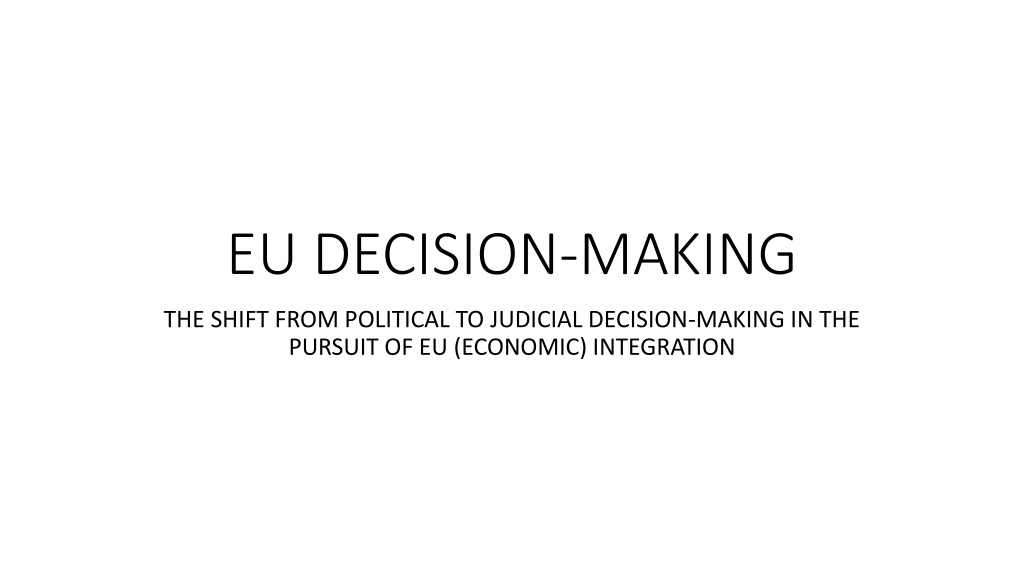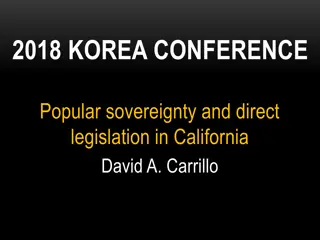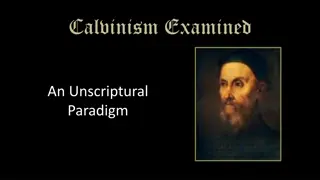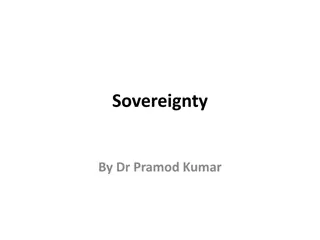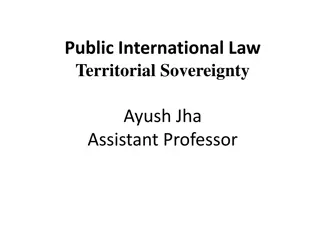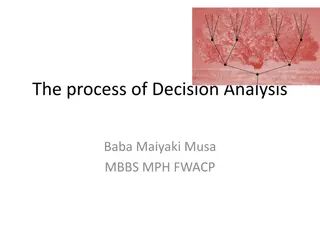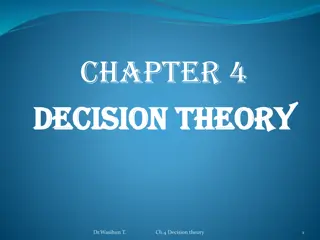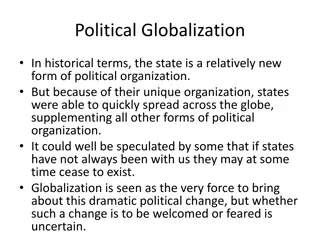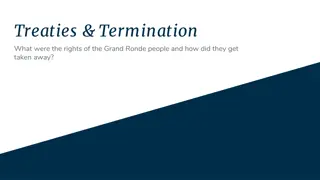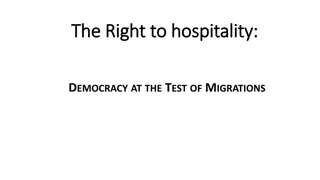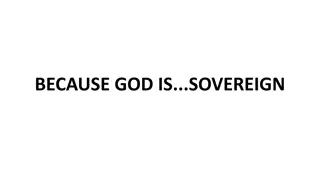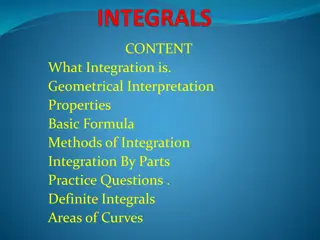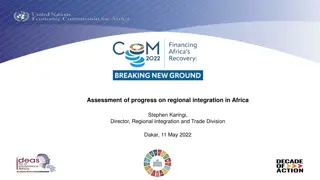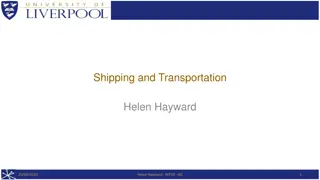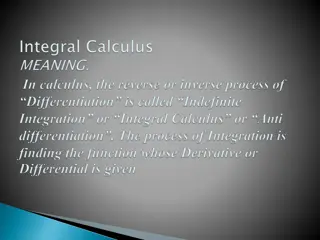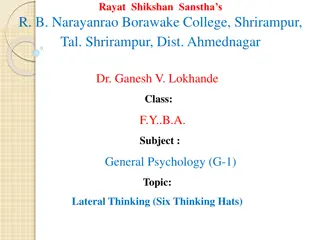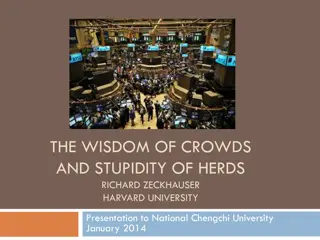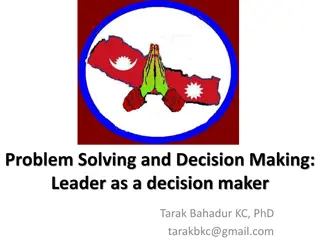The Evolution of Decision-Making and Sovereignty in the EU Integration
The shift from political to judicial decision-making in the pursuit of EU economic integration has raised questions about sovereignty within the EU framework. Key topics include the division of competences outlined in the treaties, the rise of the judicial sovereign, expansion of EU sovereign through competence creep, and the implementation of proportionality review procedures. Scholars like Grimm, Mangold, Schmitt, and Kelsen have contributed to the discourse on sovereignty and decision-making in the EU.
Download Presentation

Please find below an Image/Link to download the presentation.
The content on the website is provided AS IS for your information and personal use only. It may not be sold, licensed, or shared on other websites without obtaining consent from the author. Download presentation by click this link. If you encounter any issues during the download, it is possible that the publisher has removed the file from their server.
E N D
Presentation Transcript
EU DECISION-MAKING THE SHIFT FROM POLITICAL TO JUDICIAL DECISION-MAKING IN THE PURSUIT OF EU (ECONOMIC) INTEGRATION
THE QUESTION OF SOVEREIGNTY IN THE EU SOVEREIGN: THE ONE WHO DECIDES (SCHMITT) GRIMM: WHO IS SOVEREIGN IN THE EU? MANGOLD: THE RISE OF THE JUDICIAL SOVEREIGN THE EXPANSION OF THE EU SOVEREIGN (LAVAL, VIKING, R FFERT) PROPORTIONALITY REVIEW PROCEDURES
SOVEREIGNTY IN THE EU GRIMM: WHO IS SOVEREIGN IN THE EU? DIVISION OF COMPETENCES IN THE TREATIES (ART 3 AND 4 OF THE TFEU) ART 3: EXCLUSIVE COMPETENCES: INTERNAL MARKET, CUSTOMS UNION, MONETARY POLICY, COMERCIAL POLICY, FISHING POLICY ART 4: 1) In accordance with Article 5, competences not conferred upon the Union in the Treaties remain with the Member States. 2. The Union shall respect the equality of Member States, their national identities, inherent in their fundamental structures, political and constitutional. It shall respect their essential State functions, their territorial integrity, maintaining law and order, safeguarding national security. ART 5: 1)conferral, 2)subsidiarity, 3) proportionality
SOVEREIGNTY THE ONE WHO DECIDES (SCHMITT, BUT IN FACT, ALSO KELSEN) SCHMITT: SOVEREIGN = SOURCE OF LAW KELSEN: LAW = SOURCE OF SOVEREIGNTY THE DECISION AND THE PRESUPPOSITION
The Rise of the Judicial Sovereign MANGOLD: THE RISE OF THE JUDICIAL SOVEREIGN: Van Gend and Loos C26/26 [1963], Costa v E.N.E.L C6/64 [1964] Van Gend and Loos: Direct Effect Costa v E.N.E.L: Primacy of EU law
THE EXPANSION OF THE EU SOVEREIGN COMPETENCE CREEP (THROUGH THE PRINCIPLE OF LOYALTY) COMPETENCE CREEP THROUGH THE CJEU JURISPRUDENCE LAVAL C 341/05 [2007] VIKING C 438/05[2007] R FFERT C 346/06[2008] VERITABLE LOCHNERISATION BARNARD: DEEP INROADS INTO MS COMPETENCES
PROPORTIONALITY REVIEW PROCEDURES CLASSICAL PROPORTIONALITY REVIEW THE BALANCING PROCEDURES OF THE EU GRIMM: FROM THE POLITICAL SHARING OF COMPETENCES TO THE JUDICIAL APPROPRIATION OF COMPETENCES
